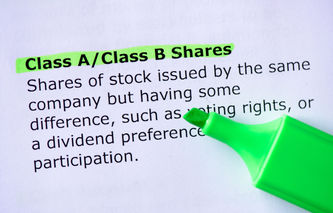Definition
The term business organization refers to the form of entity used by a company to conduct business. Sole proprietorships, partnerships, and corporations are the three forms of a business organization.
The owners of a business will take into consideration tax and legal implications, financing, and personal liability when selecting a business organization.
Explanation
While the form of an organization can change over time, business owners will carefully consider the income tax implications, ease of formation, legal and regulatory requirements, and personal liability when choosing the business organization. The advantages and disadvantages of each form of entity are provided below:
Sole Proprietorship: A business entity that is owned by only one person. These organizations are easy to form and dissolve, inexpensive to start and operate, and usually subject to fewer regulations. The owner of a sole proprietorship is entitled to all of the profits of the business as well as its debts (unlimited liability). If the owner of a sole proprietorship leaves the business or passes away, it would terminate operations.
Partnerships: A business entity that is owned by two or more persons. The partnership agreement usually specifies how the profits or losses of the business will be distributed to the partners each year. These organizations are easy to form and dissolve, inexpensive to start and operate, and usually subject to fewer regulations. Partners own assets together, share in the business profits or losses, and are typically jointly liable for debts, legal actions, and the payment of taxes. These organizations usually terminate when a partner passes away, becomes disabled, or otherwise withdraws from the business.
Corporations: A business that is organized as a separate legal entity from the owners of the company. This is the dominant form of a business organization in the United States. Corporations have unlimited commercial life, and ownership is typically determined through the issuing of shares of common stock. Nearly all corporations are formed as limited liability organizations; so while the owners of the company could lose their investments, they could not be held liable for the money owed to creditors. Corporations are created by filing a corporate charter with a state. As such they are subject to additional regulatory restrictions and, therefore, higher operating costs. The owners of public corporations are also subject to double taxation, whereby corporate income taxes are paid in addition to personal income taxes on dividends and capital gains.
Related Terms



